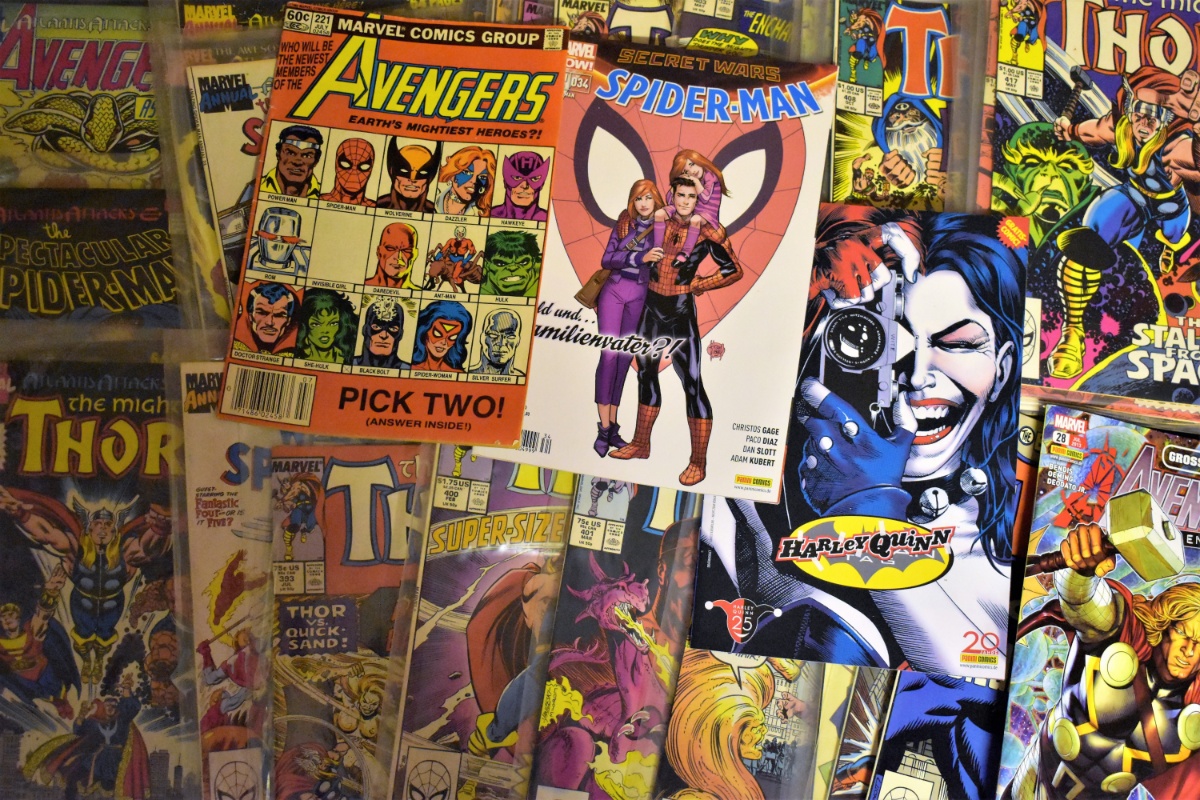2 August 2020: Do leaders of today need superhero qualities?
A welcome lockdown challenge in our household has been to watch the 23 Marvel Cinematic Universe movies, in order and back-to-back.
I learned so much about each of the superheroes and it got me pondering, “What can todays leaders learn from the attributes of just a few of these superheroes, particularly in our current times”?
It’s a minefield! And one I’d like to try to negotiate in my blog today…
Reading just a few of the learned articles written in the last few weeks alone, our leaders would need to be every Marvel superhero rolled into one to succeed!

Let’s start with Tony Stark, Ironman.
I am sure many leaders would love to have the endless technological and monetary resources of Stark right now, to say nothing of the armoured suit that protects him from everything and anything that gets thrown at him. However, protective armour (whether real or psychological) can in fact prevent leaders from being courageous.
Brené Brown, research professor at the University of Houston, states in her latest book ‘Dare to Lead’ that leaders identified ‘being brave’ as a core requirement for future leaders:
"What we learned is that it's not fear that gets in the way of courageous leadership," she said. "It's armour."
"It's what we do to self-protect when we're afraid. Because truthfully, we're all afraid and brave at the same time, all day long, every day. But, for some of us when fear takes over, we're a wreck. We go into Transformer-mode, ready for battle."
"Other people are aware that they're armouring for self-protection and choose to keep their shields off and remain vulnerable – and they are better able to lead bravely and humanely.”
In my years working with leaders, those who chose to keep their 'shields off and remain vulnerable' are rare. It's not what we learn through our schooling, our upbringing or through the role models we find in the media.
Effective leadership equals tough leadership. Being vulnerable is too scary, not just for leaders but for the teams on the receiving end of someone sharing their vulnerability.
It's a new way of engaging that requires us to be willing to learn to relate differently with those around us in the workplace.
So, do we need our leaders to be more like Captain America instead?
He is known for leading and protecting his team and ensuring they understand what’s required. He praises openly and has the tough conversations privately. Instead of avoiding constructive conflict, he speaks up if he believes there is a better way to accomplish the mission.
According to Brené Brown, one of the chief barriers to developing courageous leaders is the inability to have tough conversations.
As I work with and coach a wide range of leaders, a clear challenge many of them face is 'telling it as it is' from their perspective. Without feedback, how can we know how we are doing? If the feedback is watered down or avoided, we are prevented from growing.
Tough conversations don't have to be unkind or brutal, but they do need to be real, supported by behavioural evidence or facts, and delivered with emotional intelligence. Captain America wants his team to do well and to work as a team to save the world! As a leader, it is also important to know why you are having the tough conversation and what you want to change as a result of it.
Perhaps our leaders need to be a bit more like Captain Marvel.
As she starts to pull together some of the missing pieces from her memory, she realizes that she always bounces back from any set-back: She couldn’t and wouldn’t stay down. It’s this determination where her power lies.
A required skill set for daring leaders is “learning to rise” says Brené Brown. The most resilient people have to learn how to pick themselves back up and move on.
"To learn to get back up after a fall, we have to check the mirror," she said.

From all this extensive superhero research, my key learning is the need for leaders to be certain about what they stand for and to be willing to communicate this with clarity and courage to their teams. This means being willing to be both vulnerable and brave, and that requires leaders to have a strong sense of self.
This, for me, is where leadership starts: Understanding yourself.
If you can’t lead yourself, what gives you the right to lead others?
How can Logical Levels Inventory support authentic, effective leadership?
Through lli, with the support of a coach, leaders can dive deep into their own personal profile and unpack insights about themselves as a human being and as a leader. A catalyst to understanding themselves, if you like.
Within lli, we explore a leader’s identity and purpose together with their beliefs and values. This helps leaders identify what is important to them, what drives them and where they are (or are not) in alignment. It’s this critical level of alignment that impacts their power, authenticity and influence.
We also use lli’s Nine Leadership Qualities to help understand how leaders can truly succeed. After the 2007-08 financial crash, research helped us identify the leadership qualities that made the difference between those leaders and organisations who merely survived and those who thrived. The uncertainty of the current time is more extreme than the global financial crisis, but those leadership qualities still hold true, remaining a robust set of traits to measure, understand and develop.
I don’t believe there is a single right or wrong, good or bad set of qualities for leaders to have. Different times and situations will certainly require more of some strengths and qualities than others.
What is of utmost importance though, is the level of congruence and authenticity in a leader’s delivery and application of the qualities they have.
Through lli, we explore how leaders express each of these qualities at three different levels:
- Behaviour: how they express the quality to the outside world
- Capability: the skill they believe they have in the quality
- Belief: what they hold to be true about this quality.
When these are aligned, they will be more likely to operate from a place of inner strength and confidence. This in turn enables them to be more open and vulnerable.
Unleashing the power to lead
Of all the Marvel superheroes (and I have to say, he is my favourite), Thor believes he can no longer control thunder and lightning after the supervillain, Hela, destroys his enchanted hammer, Mjolnir. He feels powerless. Thor is then enlightened! He realises that he has the power within him: he is more than just his hammer. Mjolnir simply channelled his power.

Gaining alignment and congruence for each of the lli Nine Leadership Qualities gives leaders more power because they are more authentic and ‘followable’. Unleashing this power can change how you lead.
I would like to invite you to use lli to find out more about yourself. We can set you up with an Accredited lli Coach to discover your own superhero, and explore your leadership qualities within yourself.
Drop me a message if you'd like to learn more, or come and explore lli online.
Until next time, please stay safe.
Hilary Barnett, co-founder, Logical Levels Inventory (lli)

